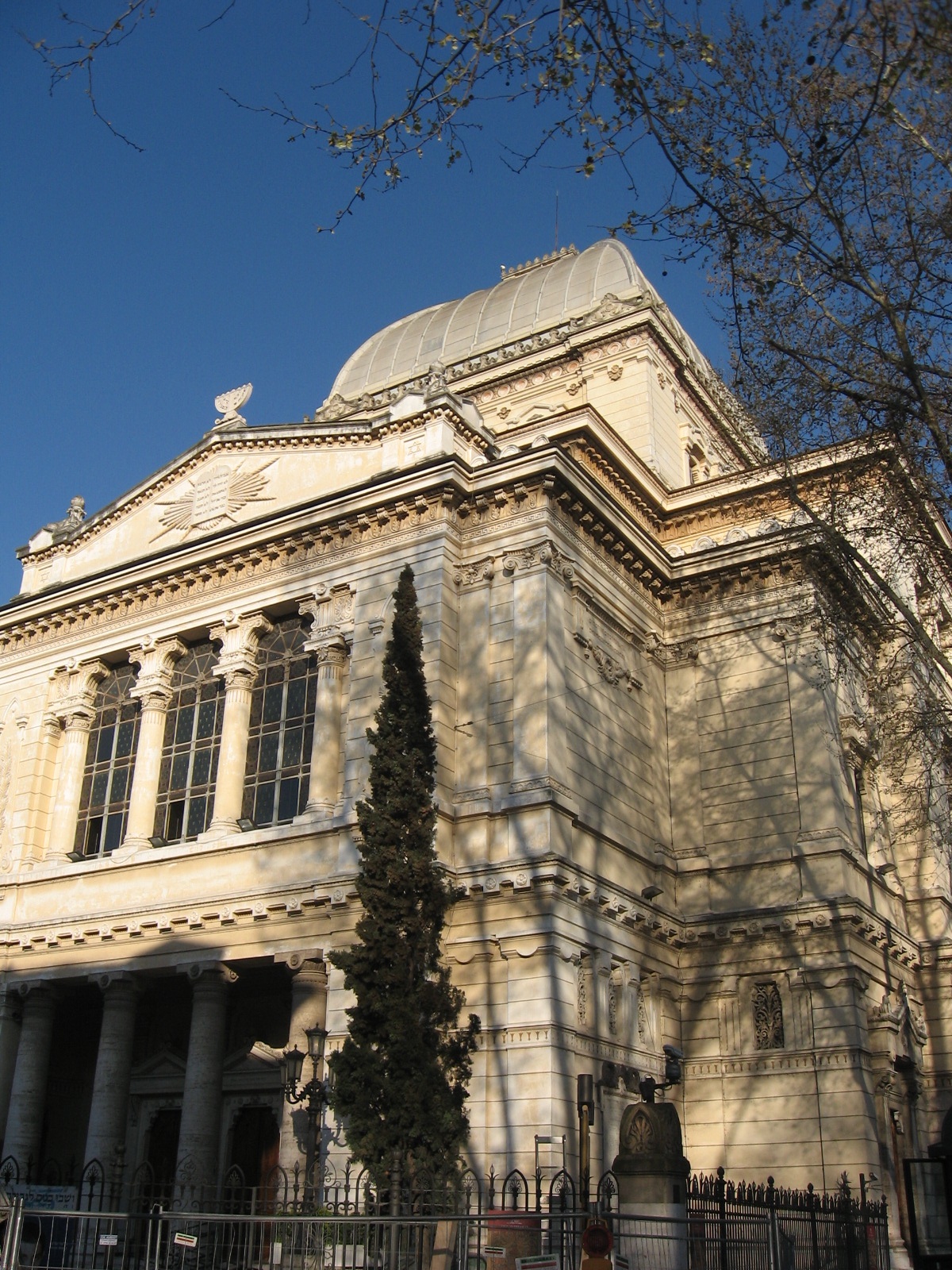Columnist Matt Flocco discusses religious harmony.
Last Wednesday, I had the privilege of being 50 feet away from the Pope as he addressed the usual crowd of hundreds of guests in St. Peter’s Square. After parading through the streets in his Pope Mobile (Holy Papa-on-wheels Batman, it does exist), he and a group of cardinals and priests delivered a reading and mass.

Afterward, each of the cardinals greeted the guests from parishes worldwide in Italian, English, French, Spanish, Portuguese, German and a seventh language I can’t remember. It was remarkable to see and even more remarkable to hear the Pope greet them in these languages as well.
Here, I saw the power of Christianity and how much of an influence it has on people. But this week, I wanted to focus on the other two religions that are a bit on the back burner compared to all the Catholic churches in Rome: Judaism and Islam.
The church obviously has its roots in Judaism. The first people that would later define themselves as Christians were, of course, known as Jews in the 100 to 200 years that followed Christ’s death.
If you venture into the Sistine Chapel (make sure you bring Aspirin and an ice pack for your neck), you can see the story of Moses along one wall, facing the story of Christ. The teachings of the 10 Commandments and the Torah had a profound impact on the Old Testament.
The major difference between Christianity and Judaism is that Jews see God as one being that cannot be in different parts. Ironically enough, the Hebrews of ancient times, especially under the rule of emperors Caesar and Augustus, were often accepted.
In the first 200 years of Common Era (or Anno Domine), the Jewish community was established in Rome. According to the American-Israeli cooperative enterprise, 12 synagogues existed at the time, and Jews held professions such as shopkeepers, craftsmen, actors and physicians.
Unfortunately, just as Christians were persecuted by Pagans, Jews were persecuted by Christians when Constantine came into power. Civil rights were taken away, and synagogues were destroyed by mobs.
During the Renaissance, Judaism experienced a similar acceptance to antiquity, but during the Reformation, they were persecuted again. This time, the pope segregated them and forced them to live in ghettos. And of course, with Mussolini as a comrade of Hitler, many Jews were forced to flee or go into hiding during World War II.
This brings us to today. With all the back and forth, there is currently a thriving community of Jews living in Rome. Many live in what is still known as the Jewish ghetto right next to the forum, but this is now a thriving community with shops and supposedly excellent cuisine. The Roman synagogue is located here, which is the head of Judaism in Italy.
The story of Islam in Rome, more importantly Italy, is a little different. To put everything into context, Judaism is arguably the earliest of the religions discussed so far in this column (including Greek and Roman paganism). Christianity had its snowball effect in the early 300s, and Islam had its own snowball effect in the 600s during the life and after the death of the prophet, Mohammed.
Jeff Matthews says in “Around Naples Encyclopedia,” Islam spread from Mecca, Saudi Arabia, both east and west. Muslims (or Moors as they were called) had influence in Spain and France by the 700s. However, the Byzantine Empire (the eastern part of the Roman Empire), had blocked its expansion until the 1400s with the fall of Constantinople.
Arabs at the time sought to spread Islam from North Africa (where they held plenty of power), to Sicily, Italy. Control of the island was achieved with the help of a rebel officer who established himself as Sicily’s ruler, in A.D. 902. Further attacks and attempts at expansion, similar to the Christian crusades that would come later in the Medieval period, ensued against the North, up into Rome, but the only strength of Arab influence remained in Sicily.
Sicily was regained once again around A.D. 1100 by the Normans, but instead of a persecution of the religion, there was a fusion. There developed Muslim-Christian art, poetry and culture. Arabic became the language of science and medicine.
Soon afterward though, the crusades ensued, and Islam clashed with Christianity. Muslims were persecuted as well, perhaps even more severely than the Jews. This feud of the two religions is a battle that is arguably still taking place today. Films like “Kingdom of Heaven,” which is about Israel and Palestine during the Middle Ages, are released today and remind us that this conflict still rages in the Middle East.
It is sad that when I type “history of Judaism in Rome,” into Google, I get actual history, but when I type “history of Islam in Rome,” the first thing that pops up is the word “Jihad.”
We have come a very long way in terms of tolerance for all three religions, but we are still a very long way off.
There is hope, however. The same pope that delivered that speech is one of the first to ever visit an Islamic country and to have interfaith talks with Muslims.
In his visit to Jordan a few years ago, he said, “Religion can be corrupted when pressed into the service of ignorance or prejudice, contempt, violence and abuse.”
Perhaps our generation can do something about these violent happenings in the Middle East, and perhaps things will be different. As the world gets smaller, the countries get closer and can start to see each other a bit more clearly and understand where the other one is coming from.
Matt Flocco can be reached at matthew.flocco@temple.edu.



Be the first to comment